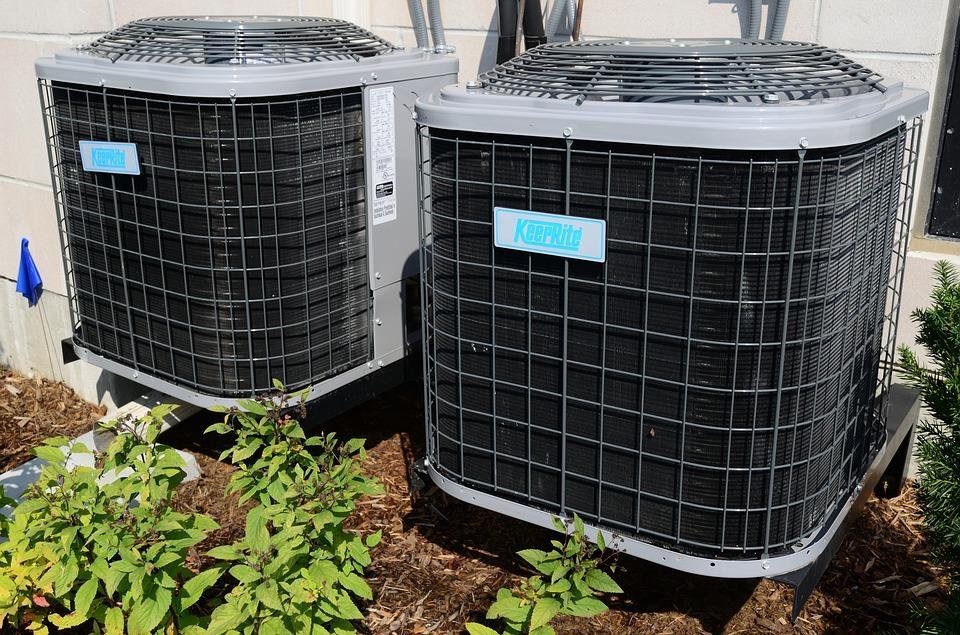5 Big Differences between Residential & Commercial HVAC

5 Big Differences between Residential & Commercial HVAC
HVAC system, which stands for Heating, Ventilation, and Air conditioning system, carries out the same functions mentioned in its name. Their sole purpose is to provide comfort with no matter where you are. The HVAC system is installed everywhere, including your workplace, as well as homes. Though at both places, its purpose is the same, there is a lot of difference between the commercial and residential HVAC systems, which you should consider before choosing an appropriate HVAC system. So here are the significant differences between the commercial and residential HVAC systems.

https://pixabay.com/photos/commercial-air-conditioning-2571306/
Differences between Residential & Commercial HVAC
Size
One should correctly plan on the size of the HCAV system according to their needs. Selecting an improper sizing of your HVAC system will only cause unnecessary load on your equipment, which will lead to the shorter and less efficient working of your equipment. Houses usually have 3-4 rooms only. As a result, for heating, cooling, or ventilation functions, a small-sized HVAC system is more than enough. An extensive size system for the house will consume much more power and will run out soon and will start malfunctioning. On the other hand, a larger unit is required for commercial purposes as it has to fulfill the needs of a huge place with hundreds of rooms and a large number of employees. The more extensive system provides a powerful output, which helps to maintain comfort on the hottest day as well as on the coldest day of the year.
Placement
Correct positioning of the HVAC system in a building is an essential factor to look upon. Both residential and commercial system produces significant noise, so they are placed away from the living or working areas. The residential unit is smaller in size so it can be placed in the backyard, basement, or at any corner of the house. On the other hand, the commercial system is quite massive; therefore, it is placed usually on the terrace of the building to save space. Plus industrial unit requires time to time maintenance check, so it becomes easier for technicians to access units on the roof to work freely in the open.

https://pixabay.com/photos/air-conditioner-global-warming-3629396/
Zone
With small space to cover, generally, residential systems consist of only a single thermostat controller to manage the temperature of the whole house, but this couldn’t go with the commercial unit. With a more extensive and diverse temperature needs at a different level and places of the building, a commercial system comes with multiple control units. The numerous control units allow the users to control the temperature at a different level of the working area independently according to their comfort. Though some people are switching to a ductless control system with the zone for residential purposes too, these are not very common.
Maintenance
A residential HVAC system is made with a stand-alone mechanism to make them compact. This mechanism implies that all the parts of the system (interior and exterior) need to work together for the entire system to work effectively. The whole system may be subject to replacement if any of the components of the system fails. On the other hand, we use the modular system in the production of the Commercial HVAC systems. These modules work independently in the HVAC system. If there is any major fault in any of them, the whole system does not need to be replaced. Only the affected one will be subjected to repair or maintenance. But this multiple module system makes the commercial system a bit complex to understand. The user will require a professional technician for maintenance and repair, which makes the commercial HVAC system costlier to maintain.
Drainage
The HVAC system present in both residential and commercial areas produces water because of the moisture it collects from the air while heating or cooling the provided space. An HVAC system’s drainage process comes out to be an essential unit to remove it. Because of its small size and less area to cover, the residential HVAC system has a simple drainage mechanism. The condensed water collected flows to a collecting pan through a small tube. For a commercial system, the process is not as simple as it looks. With such a bulk design and a large area to cover, the commercial HVAC system comes with a complex and multiple tube design with numerous pans to avoid overflowing of moisture collected.
Conclusion
There are many other fundamental differences between the commercial and residential HVAC systems like ventilation, used equipment, maintenance cost, etc., one should check before choosing the best suitable unit for their requirement. Explore thoroughly before deciding for comfort in your indoor area. Also, make sure to invest in a good quality HVAC system and contractor, which understands and fulfills your demands.

How to Maintain a Rotary Vane Air Compressor

Pet Hospital Logo Design Samples

Top 5 Tips for Starting Online Makeup Store in Pakistan

मोटरसाइकिल लोन पर ब्याज दर कम कैसे करें

Manhattan Apartments Logo Design Sample

Metropolis Real Estate Logo Design Sample

What kind of casino player is suitable for High Stakes Online Casino?

